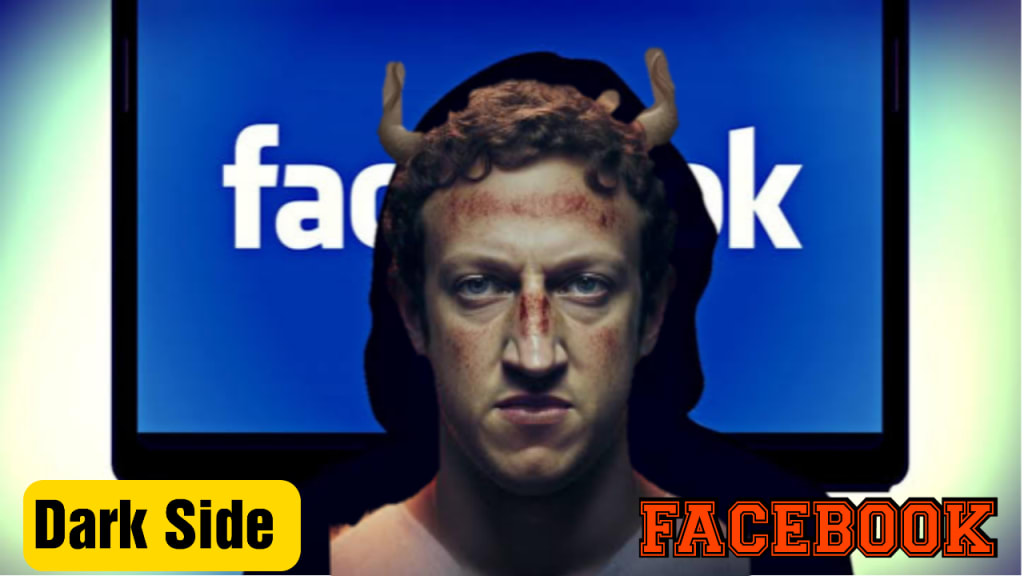Beyond Likes and Shares,The Dark Side of Facebook's Data Collection
Uncovering the Truth About Facebook's Data Collection and What You Can Do to Protect Yourself

In today's world, social media platforms such as Facebook have become an integral part of our lives. It has changed the way we interact with our friends, family, and colleagues. But, have you ever wondered how much Facebook knows about you? From your location, interests, and search history to your age, gender, and relationship status, Facebook has access to a vast amount of personal data that you may not even be aware of.
In this article, we will explore the ways in which Facebook collects and uses your personal data, the implications of this data collection, and how you can protect your privacy online.
->How Does Facebook Collect Your Personal Data?
Facebook collects your personal data in several ways. First, when you create a Facebook account, you provide information such as your name, email address, and date of birth. You may also provide additional information such as your phone number, location, education, and employment history.
Facebook also collects data about your activities on the platform, including your likes, comments, and shares. It tracks the pages you visit, the ads you click on, and the groups you join. Facebook also collects data about the devices you use to access the platform, including your IP address, browser type, and operating system.
In addition to the data Facebook collects directly from you, it also collects data from third-party websites and apps. For example, if you use Facebook to log in to other websites or apps, Facebook can access your activity on those sites. Facebook can also track your activity on websites that use its advertising and analytics tools, even if you don't have a Facebook account.
->What Does Facebook Do With Your Personal Data?
Facebook uses your personal data for several purposes. First, it uses your data to provide and improve its services. For example, it uses your activity data to personalize your news feed and suggest friends and groups you may be interested in.
Facebook also uses your data for advertising purposes. It uses your activity data to show you ads that are relevant to your interests. It also uses your personal data to create targeted advertising campaigns for advertisers.
Additionally, Facebook shares your data with third-party companies for various purposes, including advertising and analytics. For example, if you click on an ad on Facebook, the advertiser may be able to access your Facebook profile data.
-> The Implications of Facebook's Data Collection
The vast amount of personal data that Facebook collects has significant implications for your privacy. First, it can be used to create a detailed profile of you, including your interests, habits, and preferences. This profile can be used to target you with personalized ads, but it can also be used for more nefarious purposes.
For example, your personal data can be used to create fake profiles or to impersonate you online. It can also be used for identity theft or to gain access to your financial accounts.
Your personal data can also be used for government surveillance. Facebook has been criticized for cooperating with governments to provide access to user data. This can lead to violations of privacy and human rights.
-> How to Protect Your Privacy on Facebook
While it may be impossible to completely protect your privacy on Facebook, there are steps you can take to minimize the amount of personal data that Facebook collects and uses.
First, you can adjust your privacy settings on Facebook to limit the amount of information that is visible to others. You can also limit the types of data that Facebook can collect and use for advertising purposes.
Second, you can use a virtual private network (VPN) to encrypt your internet connection and hide your IP address. This can prevent Facebook from tracking your activity online.
Third, you can use a browser extension such as Privacy Badger or uBlock Origin to block third-party trackers and ads. This can prevent Facebook and other companies from collecting data about your browsing habits and activities.
Fourth, be cautious about what you post on Facebook. Avoid sharing sensitive information such as your phone number, address, or financial information. Be mindful of the content you share and the groups you join, as this can provide insights into your personal interests and habits.
Lastly, consider taking a break from Facebook altogether. While it may be difficult to disconnect from social media, taking a break can help you regain control over your personal data and privacy.
Facebook's data collection practices have significant implications for your privacy. While it may be impossible to completely protect your privacy online, there are steps you can take to minimize the amount of personal data that Facebook collects and uses. By being mindful of your online activities and taking proactive measures to protect your privacy, you can enjoy the benefits of social media while also protecting your personal information.
About the Creator
M. Bilal Ahmed
Writer and storyteller with a passion for evoking strong emotions and exploring new perspectives. Always striving to create compelling characters and unforgettable stories.






Comments
There are no comments for this story
Be the first to respond and start the conversation.